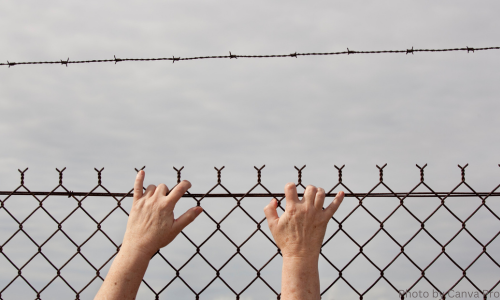- About
- Programs
- Issues
- Academic Freedom
- Political Attacks on Higher Education
- Resources on Collective Bargaining
- Shared Governance
- Campus Protests
- Faculty Compensation
- Racial Justice
- Diversity in Higher Ed
- Financial Crisis
- Privatization and OPMs
- Contingent Faculty Positions
- Tenure
- Workplace Issues
- Gender and Sexuality in Higher Ed
- Targeted Harassment
- Intellectual Property & Copyright
- Civility
- The Family and Medical Leave Act
- Pregnancy in the Academy
- Publications
- Data
- News
- Membership
- Chapters
American Universities Must Support Scholars in Exile
The benefits of hosting displaced scholars are immense.
This article is part of a series, "The Experience of Displacement."

I graduated from St. Petersburg State University in 1996. The sharp shift from socialism to a market economy in the early 1990s introduced new goods and experiences, making Russia an exciting place for many—except academics. Universities were severely underfunded, the Academy of Sciences couldn’t pay salaries, and newly minted graduates and graduate students were exploring career paths outside of the humanities and social sciences. I, too, considered leaving academia, until a grant from the Soros Foundation changed my course. Such grants helped hundreds of scholars in Russia, Ukraine, Belarus, Armenia, and other postsocialist countries resist the pull of becoming an entrepreneur, salesperson, or banker.
During this period, international organizations like the Ford Foundation, the Open Society Foundation, and the MacArthur Foundation invested in the development of the humanities and social sciences, understanding that civil society cannot grow without thinkers. This wave of support salvaged a generation of young scholars and scientists, fostering civil society and advancing education. These efforts were largely undermined, however, by the rise of a new authoritarian state and Russia’s invasion of Ukraine. Since 2022, hundreds of scholars—many trained through these initiatives—have found themselves exiled or relocated, facing bleak prospects for employment or fellowships and considering, once again, whether they should leave academia behind.
If these fellow scholars were to abandon their careers now, it would be a tragedy. The investments of the 1990s and 2000s would seem futile. When the political landscape changes—as I believe it will, with Russia eventually moving toward democracy and Ukraine reclaiming its freedom—who will be left to explain the historical roots of conflict, the social underpinnings of totalitarianism, or the institutional weaknesses that enabled the drift toward dictatorship? To prepare for this future, Western universities and foundations must support scholars from Ukraine fleeing war and those from Russia and Belarus who have faced, or may soon face, exile because of the political climate.
The United States has done this before. In the 1930s, it provided refuge to Jewish scholars from Germany. Western philosophy would look entirely different today without the influence of the Frankfurt School, which relocated to the United States and returned to Germany in the 1950s. In 1933, the New School in New York opened its doors to more than 180 refugee scholars, enriching American intellectual life. Countless other refugees have found temporary or permanent homes in the United States, strengthening the nation’s academic institutions.
I do not mean to suggest an equivalence between the situation today and the peril faced by intellectuals in the 1930s, but American universities can and should reflect on this history. As news from Ukraine fades from the headlines and the repression of Russian and Belarusian intellectuals barely makes the news, the urgency of supporting scholars only grows. Many emergency grants have expired after two years, and the scholars they benefited face significant barriers to securing regular grants. Eligibility often favors US citizens, many grants require applicants to have permanent employment, and the specific nature of some scholars’ research topics limits opportunities. Princeton University, where I teach, hosted a group of scholars from Ukraine and Russia from 2022 to 2024. When the two-year program ended, most participants struggled to find support. They applied for all possible grants, jobs, and fellowships, only to have most applications rejected.
Every rejection letter these scholars receive suggests that American academic institutions are not fully prepared to adjust their standards in response to the tragedy of war and political persecution. If fellowship programs or research centers dedicated even one or two spots to at-risk scholars, dozens would be saved from agonizing decisions. Hosting scholars for a year or two, even on a modest stipend and with visa support, would offer a critical lifeline. The benefits of hosting these scholars are immense, and the costs are not insurmountable. The United States has historically invested in supporting intellectuals during times of crisis, as seen in the 1930s and again in the 1990s and early 2000s. This tradition should continue in the present.
Ekaterina Pravilova is Rosengarten Chair of Modern and Contemporary History, professor of history, and director of the Shelby Cullom Davis Center at Princeton University.



